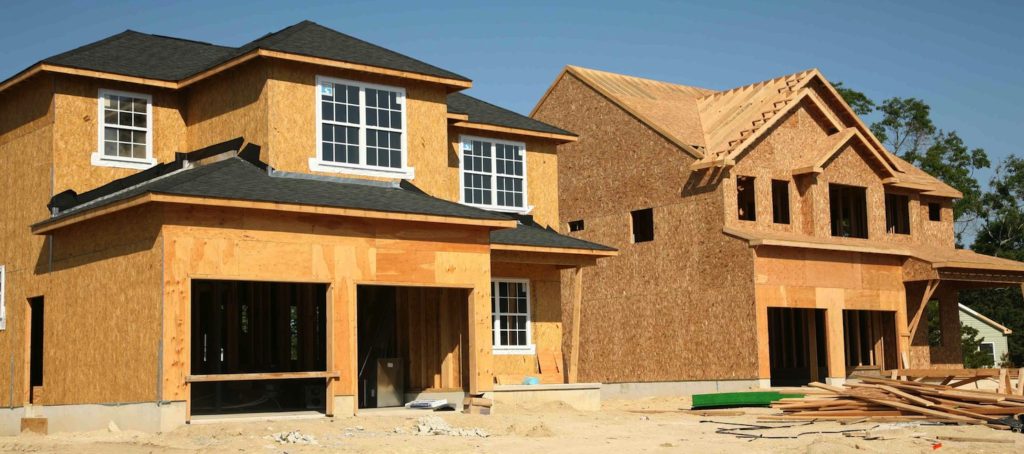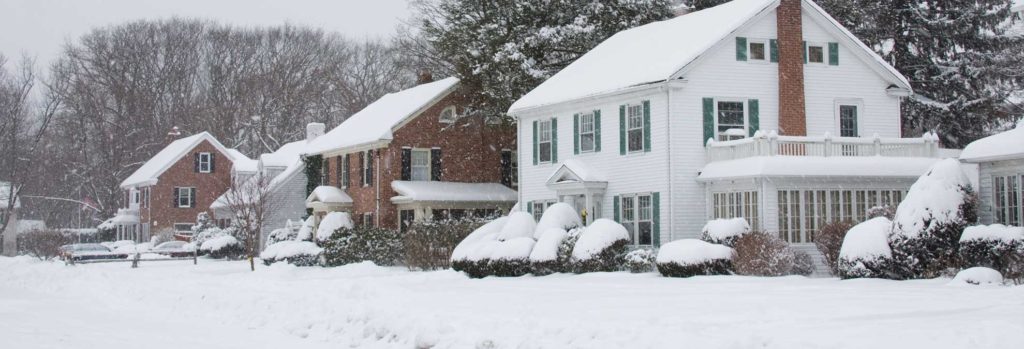Tag: realtor
Title Insurance & New Construction

Title insurance is a must-have if you’re buying a home that someone else has owned. But what if you’re paying for a brand new home to be constructed? Or one that has just been built? It may not seem necessary because no one is selling the house, because there is no house, or no one has lived in the house, so why would you need title insurance?
Although a brand new home has no previous owners, the unimproved land may have had prior owners. A title search reveals any existing liens on the land. Title insurance also protects against potential contractor liens from a builder who may have failed to pay his suppliers or subcontractors. To ensure a clear title, lenders require buyers to purchase a Loan Policy of Title Insurance. The Loan Policy only protects the lender’s interest. You can protect yourself from overlooked title threats by purchasing an Owner’s Policy of Title Insurance.
The Bottom Line: In the end, it is advisable to make sure that the title is clear. Anyone buying a new construction home should get title insurance. So much goes on with new construction which could affect the title: potential issues with new boundary lines, potential liens from subcontractors, outstanding construction loans, etc.
Spring Ready to Buy a Home

Get Preapproved
Make an appointment to sit down with the best lender to get prequalified which will help determine how small or large of a loan you will get approved for. Getting prequalified is free and relatively painless, and can be used as just a starting point. A good lender will help you set clear financial goals, whether it be saving up for a down payment, paying down debts or improving your credit score so that you can ready yourself for homeownership sooner than later.
Prequalification means a lender determines your eligibility and an estimate for what you can afford. This is all based on your current financial budget and credit history. Your lender will also be able to determine if you qualify for any loan programs.
Preapproval is a more thorough process and will allow you to find out exactly how much a lender will give you. This information is determined by a few factors, including your income and debt-to-income ratio. Pre-approval will also take into consideration the money you will have for a down payment.
Find the Right Agent
To be honest the most important thing to do is to find the right agent to work with you. You want an agent who understands the process, knows the local market and is part of a firm with a reputation for results.
When looking for and interviewing potential agents, you also want to look for someone with strong interpersonal skills and who is able to meet your individual needs. When it comes to real estate, there is no one size fits all approach. Work with an agent who understands your individual needs and wants including your budget, the neighborhoods that you like, and knows when a home for sale is overpriced and what to offer.
Determine Location
When it comes to real estate, we always “say, “location, location, location.” Why? Because while you can change many aspects of a home, this is one you cannot. Figure out what is most important to you. Do you want a short commute to work? Are you looking to remain within a specific school district?
If you have a general idea of where you might like to live, do some neighborhood research. Drive through the neighborhood at different times of the day and during different days of the week; this will give you a good idea of what it might be like living there. Things like traffic, noise, and even lack of street lights may change your perception of a particular neighborhood.
Establish Your Needs and Wants List
Determining the number of bedrooms and bathrooms is an important factor, but it’s just the beginning. Do you need a fenced-in yard? Will the type of heat (gas, electric, oil) make or break a decision for you? Are there enough closets? If you know what is really important to you and you stick to that list, you’ll be much happier once you move in.
Stay in Your Price Range
Once you’ve been preapproved, you’ll have a good idea of how much home you can actually afford. Be realistic regarding your budget and stick to it. A good Realtor will make sure you aren’t overreaching. There’s nothing worse than falling in love with homes that you simply cannot afford. Besides the actual cost of the home, you also need to factor in a down payment, closing costs, and other potential fees. Your realtor and lender can give you better insight into the costs of purchasing.
The Bottom Line: The real estate market heats up in Spring. Sellers list and buyers start looking. Today’s real estate market is very competitive, however, and there are fewer listings than there are buyers. This means you have to be quick, qualified, ready to make an offer and competitive.
Would You Buy A House “As-Is”?

Sometimes we fall in love with a home that is being sold “as-is” which benefits sellers and can either be a great deal for buyers or a complete nightmare. Legally, “as-is” means that the seller doesn’t want to make repairs, of which there can be many. The buyer then gets the home but with no guarantee that something is not minutes away from completely breaking down and needing to be replaced. What the buyer sees is what the buyer gets and sometimes more because there is no telling what you can’t see.
However, “as-is” does not always mean there are issues broken beyond repair. Often there are simply minor and even no issues. It means you are buying the home in whatever condition it is currently in. You can have an inspection done but won’t be able to negotiate to get the repairs done
While the home that is being sold “as is” is most likely priced lower than it’s neighbors it does not mean you would be getting the home for a bargain. If there are repairs to be made, there will be a cost. It would be good to get an inspection so that you know what repairs need to be made and what it will cost to get them done before you call the home a “bargain”.
Getting a loan for a home sold “as-is” is not an easy one. Banks use homes as collateral and any home in poor condition can be grounds for a loan being rejected. Buyers would have to come up with the money on their own.
Other than getting an inspection, which is definitely recommended so that you know what you are getting yourself into, an experienced Realtor should be hired. A good agent will help to appraise the home based on comps and then based on the “after repair” value. Negotiating will be much easier with the seller when you have the help of a Realtor.
The Bottom Line: There are plenty of homes on the market listed “as-is” that discourage many buyers. Of course, you should be cautious, but “as-is” does not always mean that the house is a money pit. Sometimes the seller can’t vouch for any repair work that has been done – thus an inspection can help and a decision can be made accordingly. Or, the home could have been inherited and the seller is not aware of issues and does not want the responsibility of fixing any problems. Whatever the reason, it’s in the buyer’s best interest to get all the information about the house before an offer is made.
Renovations to Skip if You Plan to Move

1. Swimming Pools
Swimming pools are one of those things that may be nice to enjoy at your friend’s or neighbor’s house, but that can be a hassle to have at your own home. Many potential homebuyers view swimming pools as dangerous, expensive to maintain and a lawsuit waiting to happen. Families with young children, in particular, may turn down an otherwise perfect house because of the pool (and the fear of a child going in the pool unsupervised).
2. Out-Building the Neighborhood
Often homeowners try to increase the value of their home so they make improvements to the property that unintentionally make the home fall outside of the norm for the neighborhood. While a large, expensive remodel, such as adding a second story with two bedrooms and a full bath, might make the home more appealing, it will not add significantly to the resale value if the house is in the midst of a neighborhood of small, one-story homes.
3. Extensive Landscaping
Homebuyers may appreciate well-maintained or mature landscaping, but don’t expect the home’s value to increase because of it. A beautiful yard may encourage potential buyers to take a closer look at the property, but will probably not add to the selling price. If a buyer is unable or unwilling to put in the effort to maintain a garden, it will quickly become an eyesore, or the new homeowner might need to pay a qualified gardener to take charge. Either way, many buyers view elaborate landscaping as a burden, though attractive and, as a result, are not likely to consider it when placing value on the home.
4. High-End Upgrades
Putting stainless steel appliances in your kitchen or imported tiles in your entryway may do little to increase the value of your home if the bathrooms are still vinyl-floored and the shag carpeting in the bedrooms is leftover from the ’60s. Upgrades should be consistent to maintain a similar style and quality throughout the home. A home that has a beautifully remodeled and modern kitchen can be viewed as a work in process if the bathrooms remain old. Thus, a kitchen upgrade might not get as high a return if the rest of the house needs work. High-quality upgrades generally increase the value of high-end homes, but not necessarily mid-range houses where the upgrade may be inconsistent with the rest of the home.
5. Carpeting
While real estate listings may still boast “new carpeting throughout” as a selling point, potential homebuyers today may cringe at the idea of having wall-to-wall carpeting. Carpeting is expensive to purchase and install. In addition, there is growing concern over the healthfulness of carpeting due to the amount of chemicals used in its processing and the potential for allergens (a serious concern for families with children). Add to that the probability that the carpet style and color that you thought was absolutely perfect might not be what someone else had in mind.
Because of these hurdles, wall-to-wall carpet is something on which it’s difficult to recoup the costs. Removing carpeting and restoring wood floors is usually a more profitable investment.
6. Invisible Improvements
Invisible improvements are those costly projects that you know make your house a better place to live in, but that nobody else would notice – or likely care about. A new plumbing system or HVAC unit (heating, venting, and air conditioning) might be necessary, but don’t expect it to recover these costs when it comes time to sell. Many home buyers simply expect these systems to be in good working order and will not pay extra just because you recently installed a new heater. It may be better to think of these improvements in terms of regular maintenance, and not an investment in your home’s value.
The Bottom Line
It is difficult to imagine spending thousands of dollars on a home-improvement project that will not be reflected in the home’s value when it comes time to sell. There is no simple equation for determining which projects will garner the highest return or the most bang for your buck. Some of this depends on the local market and even the age and style of the house. Homeowners frequently must choose between an improvement that they would really love to have (the in-ground swimming pool) and one that would prove to be a better investment. A bit of research, or the advice of a qualified real estate professional, can help homeowners avoid costly projects that don’t really add value to a home.
Should You Use a Realtor or Not When Selling Your Home

Obviously, when you put your home on the market to sell, you want to make the most money you can. The thought may run through your mind that you can sell it on your own, without a Realtor and that is understandable and can be the truth. But, there are some cons to trying to sell your home on your own. Know the obstacles as well as the benefits to the for sale by owner process before you make the decision.
PRO: You may make more money from the sale. Selling your home on your own, you might make more money than with a Realtor. You won’t have to pay the percentage fee based on the sale price. The biggest reason people try to sell their homes on their own is to save the commission.
CON: The financial benefit might not be as much as you think. A Realtor is experienced with correctly pricing the home – one of the hardest parts of selling. Without the guidance of a Realtor, sellers often rely on websites that incorrectly evaluate homes. They use algorithms that are too broad in scope and not specific to your home’s exact locale. They even admit to this in the fine print. Many FSBO homes are incorrectly priced. Nationwide statistics show that the average home sold by a Realtor sells for 13% more than the same type of home, same neighborhood as an FSBO. Overpricing a home is the top reason a home does not sell.
PRO: You have control over the sale of your home. Selling your home on your own means you have complete control of the entire process. No opinions from outsiders. You can price it, market it, negotiate all on your own.
CON: Your home will be a target for buyers looking for a bargain. Often buyers think they are going to get the best deal with an FSBO. They assume the seller is willing to sell for less because they do not have to pay a real estate agent, so be ready for such buyers.
PRO: You can devote all your attention to your home. Hiring a Realtor means that they probably have other clients selling homes. He or she won’t have all their time focused on your home.
CON: You will have to market your home without a network. FSBO home’s exposure to potential buyers is limited. Your choices for advertising are confined to yard signs, newspaper ads, FSBO classifieds, websites, open houses and word of mouth. This is often not enough to find the buyers. Most buyers choose Realtors to help them find their next home and if your home isn’t on the MLS, a Realtor won’t know to bring the buyer by.
CON: Time Consuming. You will have to devote a considerable amount of time to the sale. Your home needs to be inspected, repaired as necessary, photographed, filmed, listed, shown and more. If there are interested buyers, you will need to be available to answer their phone calls, to show the home when they are available and you will need to negotiate a good price. Plenty of people sell their own homes. Few of them do it well, so you need to be prepared to put in the work.
The Bottom Line: As much as you think you will have the time and energy to sell your own home, you won’t be able to do many of the things that an experienced Realtor can do. They are well trained in the laws pertaining to the sale of a property. They will be able to qualify a buyer. They will be able to take care of the pages and pages of paperwork. They will market and present your home with photos, and more for the most and best exposure. And, your home will be on the MLS, which is responsible for over 70% of home sales. You will need the exposure.
You Can Sell Your Home in the Dark and Cold Month of January

Putting your home on the market to sell during an off-peak season is not the most optimal but if you hire a Realtor that knows your market well, even in January, you still can sell your home at a competitive price. If you are living in the Northeast, Midwest or other cold areas, the following are some ways that can help to sell your home faster and at a fair price during the darker months of January.
There are fewer homes being sold in January (and all Winter), which makes people nervous about putting their homes on the market. More home buyers are house-hunting in the Spring months when the weather is warmer, and the days are longer. But, you might be surprised to find out that Winter could actually be a great time to put your home on the market. The new year is a time when most people are back at work after the holidays and will often search the web for their next big move. If you are serious about selling your home, it should be online and marketed early to ensure they don’t miss this audience.
In most markets, because January isn’t a high selling month, you will need a very experienced Realtor to help price your home as it can be complex. You don’t want to scare off buyers by pricing too high or even too low, causing buyers to wonder what’s wrong with your house. When your home is put on the market in the winter, buyers often assume you are desperate to sell your home and may lowball you thinking you’ll sell for any price. Buyers house hunting during the traditional off-season of January, usually means they are eager to buy and more willing to negotiate the price.
One way you can spur some interest during cold January is to price your home slightly under comparable homes in order to draw in multiple offers. More offers tend to drive up the value of your home prompting more competitive bids from buyers who often will end up paying more than the initial asking price.
The real challenge might be to help dress up your home in dreary January weather. To help make your home feel more welcoming, shovel the walks, add outdoor illumination along paths, light candles indoors, add cozy throw blankets, have holiday-type smells such as cinnamon or cookies, but take down any holiday decorations.
Furthermore, during the cold, any problems you may have in your home can become more prominent including drafts and leaks. To help lessen these potential problems, crank up the heat so buyers feel toasty warm and will be less likely to notice any issues.
While it may be difficult to sell your home in January, it’s not impossible especially if you hire an experienced Realtor who knows your neighborhood well and can guide you to list your home at the best possible price. Sometimes, waiting to list your home during the beautiful Spring months when the sun is out and the trees are blooming and flowering can mean that you could miss out on potential buyers. Many Realtors will tell you, some of their best sales happened in the new year.
The Importance of a Realtor When Buying a Home

Be sure to vet and find the best Real estate Agent before you set out to look for your next home. They will play a huge role in one of the most important financial decisions of our lives. When it comes to buying, selling, leasing, or renting, they will lead us through a sometimes bumpy and overwhelming process.
Websites can help you find the area you want to live in, even some of the houses that you want to see. But, an experienced Realtor can offer a level of expertise in the market that you won’t be able to get without her.
1. Advice. Expect your Realtor to provide advice relating to homes even before you tour them. A good agent will have already learned from you about what you want & need, what your preferences are and what your budget is. She will be able to help you narrow your search and identify your priorities.
2. Educate. Your Realtor will be able to provide data on the local home market and comparable sales. The home-buying process can be complicated. A good agent will explain the steps involved and make sure that you understand them and provide counsel to you.
3. Network. An agent who is familiar with the neighborhoods that you are interested in and will often know about pocket listings. Experienced agents tend to know other agents in the area and have good working relationships with them; this can lead to smooth transactions. Your agent may also be able to refer you to trusted professionals including lenders, home inspectors and contractors.
4. Advocate. When you work with a buyer’s agent, their fiduciary responsibility is to you. That means you have an expert who is looking out for your best financial interests, an expert who’s contractually bound to do everything in their power to protect you.
5. Negotiate. Your agent will handle the details of the negotiation process, including the preparation of all necessary offer and counteroffer forms. Once your inspection is done, the agent can also help you negotiate for repairs. Let the agent do the “dirty work” and ask for things to be fixed. They know how to negotiate from experience and what will and will not work.
6. Paperwork. A real estate transaction can be exhaustive, not to mention all the federal, state and local documents required. If you forget to initial a clause or check a box, all those documents will need to be resubmitted. A good real estate agent understands the associated deadlines and details and can help you navigate these complex documents.
7. Knowledge. Plenty of issues can kill a deal right before the closing; perhaps the title of the house isn’t clear, the lender hasn’t met the financing deadline or the seller has failed to disclose a plumbing problem. An experienced real estate agent knows to watch for trouble before it’s too late, and can skillfully deal with challenges as they arise.
The Bottom Line: You can buy a home without a Realtor. People do it all the time. But, going at it alone can be a risky bet. There can be a lot of legal loopholes that can be overwhelming and confusing for someone not experienced in the real estate business. Buying a home is a long and often very emotional process. The Realtor will handle all the stress for you that goes with finding financing, negotiation, and closing.
Serious Problems in Overpricing Your Home

Putting your home on the market and want to get the most you can out of the sale? Of course, you do. We all do. However, there are issues associated with listing your home too high. After you review the comps from your neighborhood, you come to your own conclusion that your home is worth more. You can even find Realtors who will agree with you but know that the very best Realtors will tell you that overpricing a home can lead to serious problems.
Problem #1: Listings get the most showings in the first 30 days of being on the market. If a home is priced too high, buyers may choose to ignore it or put it in a “wait and see category.” The longer the home sits unsold, though, the more negatively it is viewed. Buyers will think it must be overpriced or there is something wrong with the home. If you wait too long to do drop the price, most of those “wait and see” buyers will have already moved on and there will be a smaller pool of buyers interested in your listing as the days on the market increase.
If the home is on the market too long, potential buyers will think they are in a better negotiating position and you may end receiving a low ball offer, which can be frustrating. Even if you can negotiate up, it will be for far less than your original asking price. If you want to attract as many potential buyers as possible, it’s important that the home is priced correctly from the onset of it going on the market.
Problem #2: An overpriced home helps your competitors. When a buyer looks at your home and then visits another that is priced the same but comes with more features, your competitor’s home will look like a much better deal.
Problem #3: If your home sits on the market for too long, neighbors and potential buyers will assume that there is a problem with it. The home will be stigmatized, and buyers will either be too turned off or too afraid to check it out.
No one wants to buy a house that nobody else seems to want. A house that sticks on the market for months often generate suspicions that some undisclosed feature or element is making it unsalable.
Problem #4: A buyer is interested in your house and willing to pay the price you are asking. But they need to get money from the bank to pay for it. All banks demand an appraisal of any property they loan out money for, and yours will not be the exception. The market runs the appraiser and they will appraise your property in accordance with it. When the appraiser comes back with a noticeably lower market value than the price the buyer is offering the bank will likely refuse to give the buyer a mortgage. This can lead you from a safe selling to an unsuccessful mortgage application leaving you with no option than seeking more buyers.
The Bottom Line: Find an experienced Real Estate Agent and listen to their advice for pricing your home, stay realistic in your pricing and accomplish your ultimate goal of selling your home. Know that 75% of real estate marketing is the price you set for your home. All of the marketing and advertising in the world will not sell an overpriced home.
Securing Your Smartphone

As technology advances, so does the use of smartphones. How cool is it to be able to do just about anything online, while on the go? These devices are becoming more commonplace, and the number of mobile phone users around the globe is expected to exceed the 5 billion mark in 2019. Most people don’t leave home or work without having their phone in tow.
Whether it’s calling your coworker, checking your bank account or sending a quick email, smartphones have become the one-stop-shop for conducting business. Now, more than ever, smartphones are being targeted by cybercriminals due to their part in multifactor authentication to access computers, mobile banking and shopping accounts. These accounts often hold sensitive data, credit card information (PCI) and personally identifiable information (PII). As we move into a digital era for the home closing process, smartphones have become another place to review sensitive documents ahead of signing. With such important information being viewed and sometimes stored on your phone, it has become even more vital that you keep your phone secure.
It may be surprising, but the largest risk to your phone security isn’t hackers, it’s you. Forgetting your phone at the table when you leave a restaurant, losing it at the airport or having it plucked from your purse are far more likely scenarios than getting hacked. However, hacking devices is on the rise too, and your phone security strategy should take that into account. Activating the lock screen feature on all your devices is a good place to start. The screen automatically locks when the device is not in use, and it requires a passcode, fingerprint or facial recognition to unlock it. This step helps to ensure that no one can access your device if it is lost or stolen.
Here are some other great tips to help secure your mobile device:
- Ensure your phone is always running the latest version of its operating system and apps by enabling automatic updates. These updates often are meant to fix security weaknesses in the software to reduce its chance of being hacked.
- When downloading apps to your phone, only use trusted sources such as the Apple App Store, Google Play or the Amazon Appstore. Don’t trust every app on these stores, either. Many apps ask for overly broad permissions, are brand new and not fully tested, or are no longer updated, which could expose you to security vulnerabilities. Be sure to check reviews and for active updating before downloading an app.
- Download a credible antivirus app recommended by a trusted source. Your device should be treated just like a computer and protected that way as well.
- Many phones today come with software you can enable to remotely track your device if it’s lost or stolen. Even if your phone doesn’t come with this feature, or you would like expanded security options, there are many anti-theft apps available. These apps range from simply pinging your phone’s location to being able to remotely lock and wipe all content from it.
- Regularly backing up your data is a great strategy to retain your information. Many phones allow you to set up an automatic backup to store photos, messages, apps and more. Knowing this information is backed up will make it easier to choose to remotely wipe your phone, if needed.
Overall, mobile devices add productivity and flexibility by providing access to resources at any time, from anywhere. Smartphones are becoming our constant companions, so we need to stay vigilant when it comes to mobile security.

 See Our National Coverage Map
See Our National Coverage Map